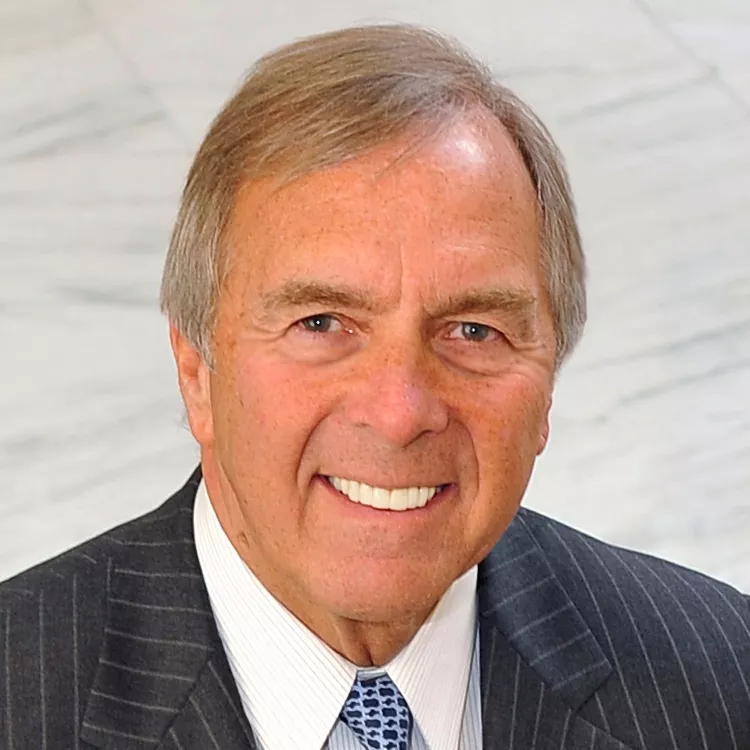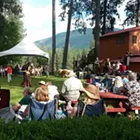The United States is a country divided — by politics, race and economic condition. But that doesn't mean Americans are divided about the kind of future leadership they desire. Political affiliations give us insight on leadership preferences, but most leadership standards are basic and universal — any President who personifies them can unite us.
In 2013, Gallup polled 18,871 Americans: 42 percent of us identified as Independents, Republicans represented 25 percent of the electorate, and Democrats represented 31 percent. Those are the lowest percentages of party-affiliated voters in 25 years. The trend of voters rejecting major party affiliation coincided with the federal government shutdown in the new millennium and public dissatisfaction with Obamacare.
Federally elected officials across the board are generally unpopular. Congressional approval ratings have long hovered in the teens. President Obama's approval ratings sank below 50 percent months ago. Our media-rich environment highlights these dismal numbers by emphasizing the personal flaws of public figures and contributes to creating an environment not faced as much by yesterday's leaders. Today's culture of independence and indifference makes Americans more oblivious to the content of politicians' messages and less attentive to leaders' national policies.
Two years ago, former Virginia Congressman Frank Wolf rhetorically asked a student group: "Where are the giants? The Jeffersons? The Washingtons? The Lincolns?"
Americans are looking for public figures in whom they can take pride, and who have wisdom and leadership skills worthy of a wide following. In recent years, an inexperienced and detached president, a listless Senate and a fiercely divided House have discouraged an American public fed up with petty conflicts.
History judges our prior leaders. According to Gallup, the most popular presidents since 1945 have been Dwight D. Eisenhower, John F. Kennedy and George H.W. Bush, all with average approval ratings above 60 percent. What made them so popular during their service?
Eisenhower was a trusted, victorious World War II military leader; Kennedy was youthful, vigorous, polished and charismatic; Bush was gracious and highly experienced. A journalist once wrote of spending two hours interviewing Eisenhower after he left the presidency; possessing an intimidating demeanor that marked his leadership history, Eisenhower never once took his steely gaze off the interviewer. Kennedy could light up any room he entered with his charming ways, clever humor and sheer presence. Bush's important experiences as congressman, vice-president, ambassador, CIA director, Republican Party leader and World War II hero commanded respect, making one feel special to be in his presence. These presidents were people of intelligence, position, wisdom and experience. Most would regard them as great human beings and true leaders — giants.
The immense box office popularity of the movie American Sniper illustrates how much many Americans still value the personal qualities of self-sacrifice, love of country and dedication to duty. Gallup once developed a list of qualities that Americans respect: leaders willing to make hard decisions, strong and decisive; who understand problems Americans face daily; who can get things done and who share the public's values.
In today's complex and dangerous world, where do Americans find the "giants" of whom Congressman Wolf speaks?
A diverse field of presidential candidates is emerging for the 2016 elections. Those who assure us that they're prepared to make hard decisions about America's future, who demonstrate their integrity, intelligence and the ability to cogently articulate national objectives that complement public values, will be attractive. Americans are hungry for leaders with experience and sound judgment, who unequivocally reassure Americans of their country's strengths and that it will remain the world's dominant power.
As difficult foreign affairs and economic challenges dominate the news, the U.S. needs "giants" to lead us now, more than ever — humble and confident enough to work collaboratively on thorny domestic problems, yet bold enough to help America face down the world's evil. It's worth noting that the most popular Super Bowl commercials — Budweiser's vulnerable puppy rescued by the team of mighty horses, and the Toyota ad stressing the vital role of a dad — reflect Americans' hunger for security. The next leader of the free world must give us — and the world — reassurance.
Anyone who doesn't address the needs of all generations, rejecting accepted Constitutional traditions and disdaining opposing viewpoints, will fail as a leader trusted with the honor of high office. Leaders with fresh and reassuring platforms will attract voters. Records of trustworthiness and commitment to American progress for all will be essential.
Giants stand tall and aren't afraid of their shadow or of oversized challenges — from anyone. Policies that unify Americans could make our next president a 21st century giant. ♦





















